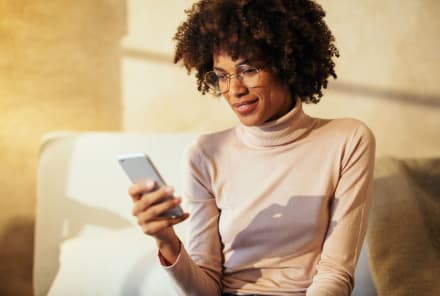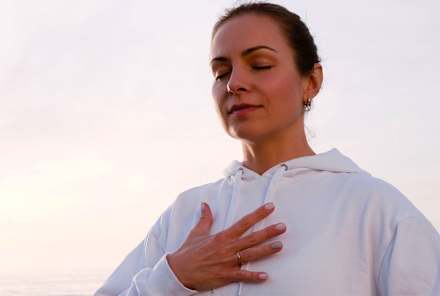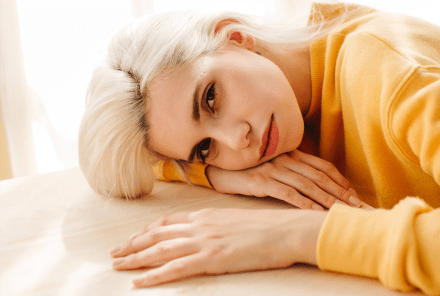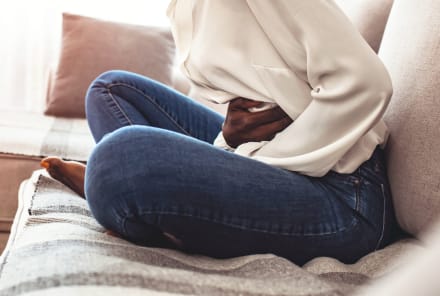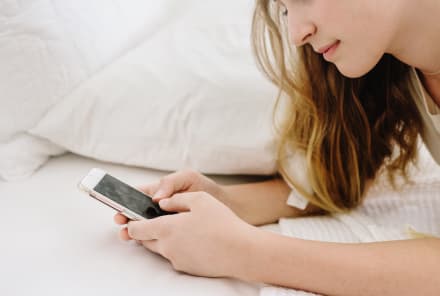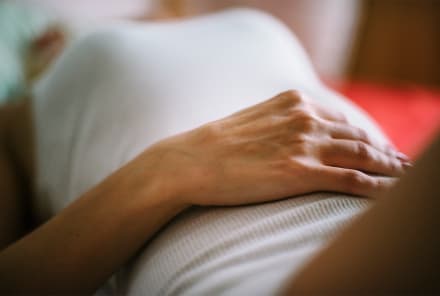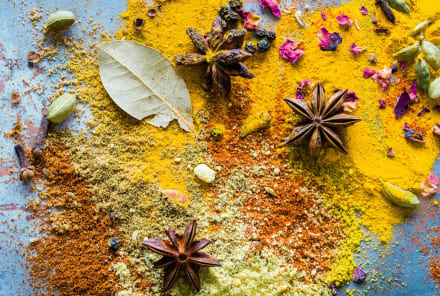Advertisement
Step 1: Try This Simple Sleep Hack, Step 2: Feel Way More Alert During The Day

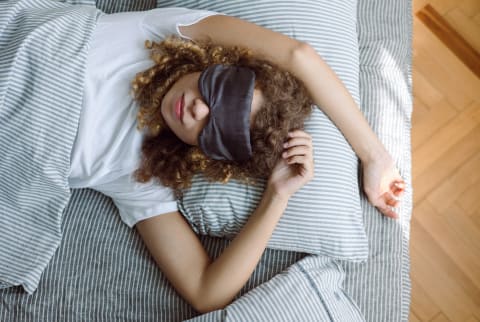
By now, most of us have heard that keeping a dark bedroom can help our sleep. But for those of us who live in cities or brighter environments and don't want to shell out for blackout curtains, it's easier said than done. Thankfully, a well-designed body of research published in Sleep found that something as simple as wearing an eye mask can go a long way in improving our sleep and cognition.
Masking up
For the first portion of this study, nearly 100 healthy young people (ages 18 to 35) wore a sleep mask to bed every night for a week. Then, they headed to a lab to have their memory formation, reaction time, and alertness tested. The following week, they did the same thing but without the mask.
Over the course of the two weeks, participants were asked to keep everything else about their sleep routines consistent: Bedtime, wake-up time, etc. They also abstained from drinking coffee and alcohol and taking daytime naps throughout the duration of the study.
While previous trials have looked into the effects of sleep masks in hospital settings, this is one of the first to study how well these tools actually work in a home environment. Fun fact: Lead author Viviana Greco, a Ph.D. candidate at Cardiff University is said to have been inspired to design it after moving to a house in the UK that didn't have shutters.
So, what were the results?
Greco's team found that memory formation and alertness scores did indeed improve when participants wore their masks to bed.
To explore the topic further, they designed a second experiment in which a smaller group of 35 adults wore a sleep mask to bed for five nights and then a sleep mask with eye holes cut out for two nights. This was meant to serve as a control mask that gave participants the feeling of sleeping with a mask, without the light-blocking benefits. They also wore EEG headbands to measure sleep stages during this follow-up study.
Again, those with the real mask performed better on post-study cognition tests. After analyzing the EEG data, researchers proposed this could be due to an increase in slow-wave activity in the brain while wearing sleep masks that block light from reaching the retinas.
"Given the current climate of life-hacking, sleep monitoring, and cognitive enhancers, our findings suggest the eye mask as a simple, economical, and noninvasive way to get more out of a night of sleep," the study authors conclude.
Other science-backed ways to support sleep
This research reiterates the importance of darkness for spurring sleep—and proves that you don't need to head into the woods to get it. Wearing a sleep mask is just one simple, science-backed habit that can have outsized effects on sleep. Here are a few others:
Turn off electronics: Along the same vein as keeping a dark bedroom, turning off electronics at night can help regulate your circadian rhythm and send a signal to your body that it's time to sleep.
Take a magnesium supplement: Magnesium is one ingredient you'll find in sleep-supporting supplements that actually has research behind it. The essential mineral has been shown to help people fall asleep faster1 and stay asleep longer2 in clinical trials. Plus, it's gentle and non-hormonal, making it safe to take nightly and relatively affordable. Here are a few Ph.D.-approved magnesium supplements to look into.
Get into a rhythm: If you ask a sleep doctor about the best thing you can do for your snooze, 9 out of 10 of them will probably say to keep your routine consistent. By going to bed at the same time every night (sleep mask in hand) and waking up at the same time every morning, you'll help your body settle into a more consistent, less fragmented sleep schedule.
The takeaway
Research shows that wearing a sleep mask to bed can help keep you mentally sharp and focused. It's just one of the many sleep tools that are now being supported by science. Read up on some more research-backed sleep tips here, and shop five of the best light-blocking sleep masks here.
Watch Next
Enjoy some of our favorite clips from classes
Enjoy some of our favorite clips from classes
What Is Meditation?
Mindfulness/Spirituality | Light Watkins
Box Breathing
Mindfulness/Spirituality | Gwen Dittmar
What Breathwork Can Address
Mindfulness/Spirituality | Gwen Dittmar
The 8 Limbs of Yoga - What is Asana?
Yoga | Caley Alyssa
Two Standing Postures to Open Up Tight Hips
Yoga | Caley Alyssa
How Plants Can Optimize Athletic Performance
Nutrition | Rich Roll
What to Eat Before a Workout
Nutrition | Rich Roll
How Ayurveda Helps Us Navigate Modern Life
Nutrition | Sahara Rose
Messages About Love & Relationships
Love & Relationships | Esther Perel
Love Languages
Love & Relationships | Esther Perel
What Is Meditation?
Box Breathing
What Breathwork Can Address
The 8 Limbs of Yoga - What is Asana?
Two Standing Postures to Open Up Tight Hips
How Plants Can Optimize Athletic Performance
What to Eat Before a Workout
How Ayurveda Helps Us Navigate Modern Life
Messages About Love & Relationships
Love Languages
Advertisement

Study Investigates How Fasting Impacts Sleep, Hormone Health & More
Gretchen Lidicker, M.S.
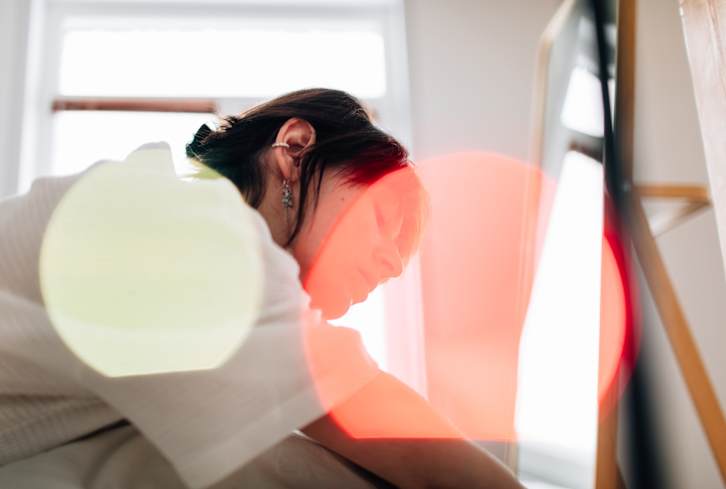
11 Signs You Have A Metabolic Imbalance, From A Functional Medicine Expert
William Cole, IFMCP, DNM, D.C.

Study Investigates How Fasting Impacts Sleep, Hormone Health & More
Gretchen Lidicker, M.S.

11 Signs You Have A Metabolic Imbalance, From A Functional Medicine Expert
William Cole, IFMCP, DNM, D.C.
